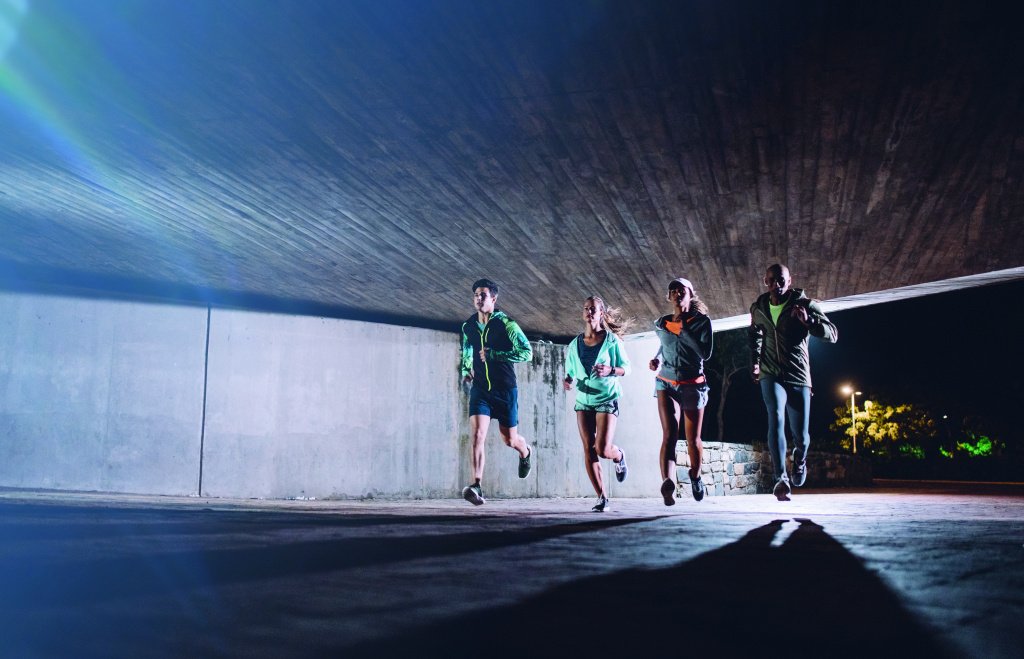Sleep is a shy little beast: nothing is enough to scare it, like when you train a few hours before going to sleep.
Exercising in the evening or sleeping well, this is the cruel dilemma that many people face in spite of themselves. The storyline is roughly as follows. At the end of your working day, you have the firm intention of exercising. Running? Escalation ? CrossFit? Regardless, the idea is to push the machine in order to reap the benefits for your health, both physical and mental. The problem is that you often end this session in a state of hypervigilance that extends to the pillow. Instead of falling into the arms of Morpheus, you then chat with your bolster for long hours. Frustrating.
Yet science tends to affirm the opposite. Several experimental studies published in the last decade conclude that high-intensity physical activity carried out in the early evening does not disturb sleep. Rather, exercise improves overall sleep quality, reduces sleep onset time, and lengthens the total duration of deep sleep during the night. The researchers behind this work point to the antidepressant and anxiolytic effects of physical activity to explain this relationship. Body temperature also has a role to play; its fall in the hours following training, after it has increased, facilitates rest.
A stubborn myth
So why does the misconception that being active in the evening interferes with sleep persists? The devil is in the details. We know, for example, that exercising 60 to 90 minutes before bedtime is associated with a lower quality of sleep. In addition, the course of the session (or, worse, of the match) also seems important. Thus, some top athletes, such as those in the National Hockey League (NHL), admit to thinking about their performance several hours after a game before falling asleep. It’s easy to imagine an amateur sportsman “ruminating” over his intervals, especially if they didn’t go well.
Several innocuous gestures that have nothing to do with the practice of physical activity can also interfere in the equation and distort it. Exposing yourself to blue light in the evening slows the production of melatonin, the sleep hormone. That’s why you should avoid poking around on your smartphone, tablet, and computer before you go to bed. Consuming too much caffeine is also harmful; beyond 400 mg per day (the equivalent of three cups of coffee), insomnia awaits you. Long naps during the day are to be avoided. Keep them short, lasting around 15 to 20 minutes. Program an alarm if needed.
Conversely, including relaxation exercises in your pre-sleep routine can help a lot. For example, opt for static stretching, mindfulness meditation or yoga postures on the ground (of the child, of the cat, of the corpse…). The goal: to get your body to decompress before slipping into the sheets. In addition, it will help you improve your sports performance. Training and sleeping well is possible.
Performing after a bad night’s sleep
A study published last winter in the scholarly journal Physical Activity and Nutrition compared the athletic performance of two groups of athletes: one who slept for 8 hours, and the other who only slept for 4:15 hours. subjects were similar. On the other hand, those who experienced too short a night were exhausted much more quickly during an exercise test at a constant pace (85% of VO2 max). So it’s not just a vague impression: disturbed sleep can have a tangible effect on training the next day, especially if it is done at the right intensity.
We would love to give thanks to the writer of this article for this incredible web content
Train in the evening… and sleep – Géo Plein Air
Check out our social media profiles and the other related pageshttps://nimblespirit.com/related-pages/


